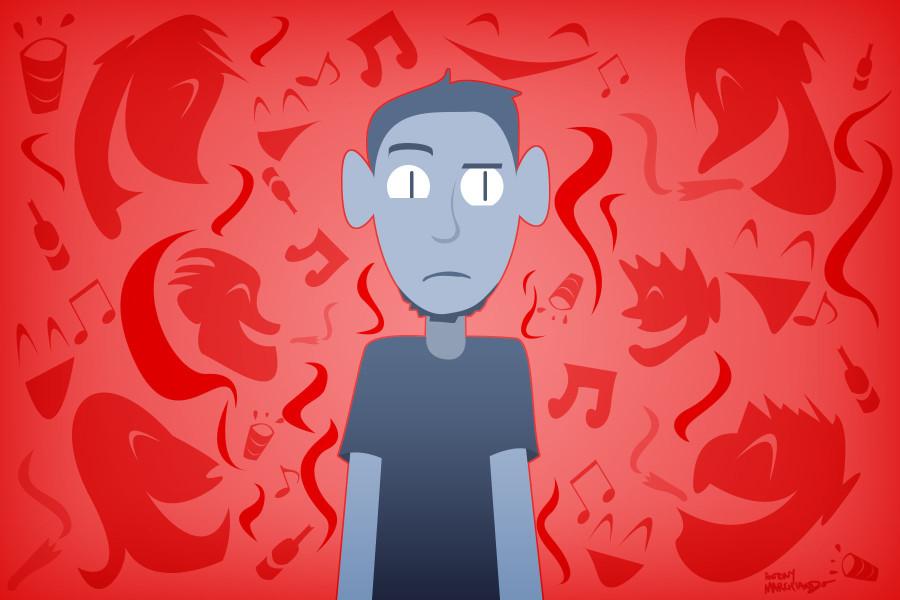More than half of City College students reported feeling hopeless in the past year—and nearly 70 percent said they feel “sad,” according to the National Health Assessment administered earlier this fall.
A total of 770 students were surveyed in the random sample, giving a comprehensive portrait of City College students’ physical and mental health. The results are allowing the Student Health Department to identify emerging problems and evaluate new health programs.
“It’s shocking,” said Ben Murphy, Alcohol and Substance Abuse Awareness Program adviser. “Students are under a lot of pressure, and sometimes they can be emotionally overwhelmed.”
The survey also revealed 69 percent of male students and 87 percent of female students felt exhausted, and 54 percent of men and 64 percent of women felt very lonely in the last year.
“Depression is really a common reason why we see students at the Health Center,” said Laura Fariss, nurse and director of Student Health Services.
Students claim their stress is mainly caused by academics (M 47 percent – F 55 percent,) finances (M 43 percent – F 47 percent,) family problems (M 38 percent – F 46 percent,) sleep difficulty (M 35 percent- F 37 percent,) intimate relationships (M 35 percent – F 42 percent and career issues (M 32 percent – F 27 percent.)
“There is so much stress a person can handle before starting feeling depressed,” Murphy said.
A large number of the City College population comes from out of town, state, or country and has to face the challenge of developing a new supporting social system, making new friends or finding roommates while keeping up with the studies. These can all be additional sources of noticeable stress.
“I feel stressed about school, above all, because I am an international student and English is not my first language,” said Business Administration Student Jennifer Soto Diaz. “I feel compelled to do better than others, and I don’t want to go back to my country with the feeling I have failed.”
The report showed that 22 percent of City College students reported that the main factor that affected their academic performances along with stress is work. A separate report, The National Reference Group instead reported that work impacts academics for 14 percent of students.
Another area in which City College students exceeded data in comparison to the National Reference Group is their alcohol use. 13 percent of Santa Barbara students report having a problem, versus the three percent of the reference group.
Murphy said it is no secret that Santa Barbara has gained a remarkable reputation for its party culture, which has been going for decades.
“It has been a culture that has been passed down from generation to generation and now it is getting out of hand,” he said.
City College has taken the survey in 2000, 2008 and 2013 and the Student Health Faculty Members have seen increasing the data relative to alcohol use, survey after survey.
“The drinking and the alcohol data is such a change from when I was in College,” said Fariss. “It did surprise me.”
City College Student Health and Wellness Services provide a variety of free resources for students in need. Students need to show their IDs and can be minimally charged for medications and tests.
Medical Services are available for low urgent care cases and students can be supplied with first aid treatments or be schedule for a visit with medical providers on and off campus.
Personal counseling is another pillar of the Health Center. Students can have six sections per semester with a personal counselor to freely talk and vent about the issues they are going through.
The Alcohol and Substance Abuse Awareness Program, Tobacco Cessation and Project HOPE are further programs aimed to help students to regain their well-being, live healthier and with more with balance.
The American College Health Association has surveyed more than 90,000 students last spring in 140 colleges. At the end of October, the association will inform the Health Department about the Santa Barbara City College position in comparison to the other schools surveyed.









